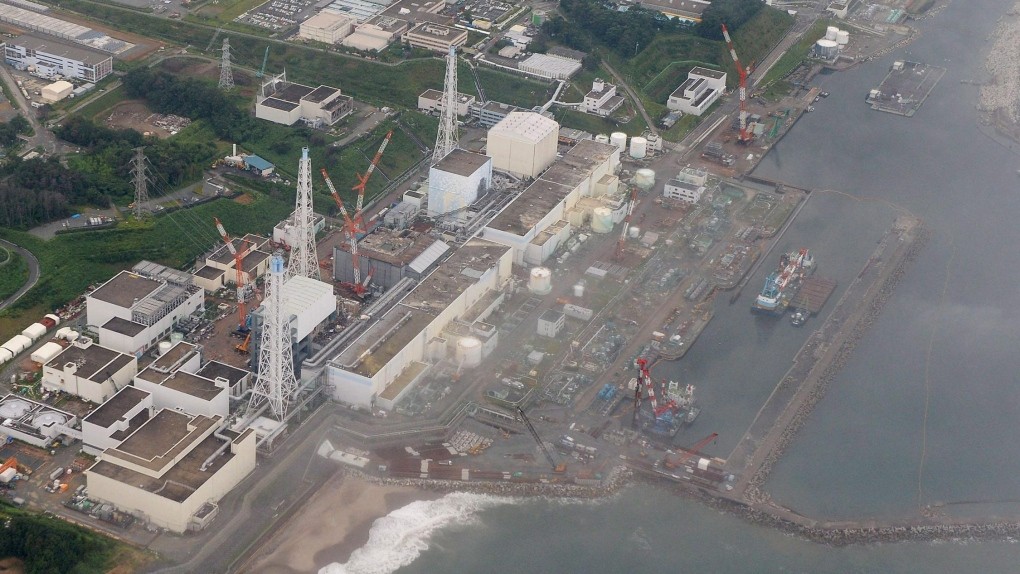China Opposes Fukushima Water Release, Hong Kong Backs Move
Is China obliquely trying to develop a leadership role in the Indo-Pacific by fuelling opposition to Japan’s planned release of treated water from the Fukushima nuclear power plant into the ocean? Looks like it.
Japan plans to release the water into the ocean in small portions for the next three decades. The International Atomic Energy Agency has given a green light.
The IAEA’s final report is based on an on-site review that was completed in June. Japan now hopes the IAEA’s evaluation will mollify opposition in neighboring countries.
The agency is opening an office in Fukushima to “permanently” monitor and assess the process “for decades to come”. This is more to convince neigboring countries and millions of Pacific islanders who are apprehensive of the discharged treated water contaminating marine life.
China was the foremost nation to criticise the release. China’s ambassador to Japan, Wu Jianghao, has taken a stand that there is no precedent for wastewater being released into an ocean after a nuclear accident. “The Japanese side says that nuclear power plants around the world are all discharging wastewater, but that water has not been exposed to a reactor core that has melted,” Wu said. The Fukushima water is not comparable with regular cooling water, he added.
Following China’s outburst, Hong Kong took the initiative to become the former’s vocal ally, surprising many. The island city’s Chief Executive John Lee promised his government will take “decisive action” if and when Japan starts releasing the water, stressing this would include prohibiting foods products from numerous Japanese prefectures.
There appears a minor difference in the stridency of the two voices. In contrast to mainland China, which has vowed to maintain a complete ban on food imports from Fukushima and nine other prefectures, Hong Kong has kept a relatively lenient policy on seafood from Fukushima, allowing imports with radiation certificates issued by Japanese authorities. But Lee, who had already said he would “consider” tougher measures, declared that Hong Kong “will definitely go beyond” the current arrangements due to safety concerns.
While China and Japan have had their share of feuds, Hong Kong has generally kept its distance, prioritizing commercial ties. But the dispute over the Fukushima water has brought a tangible shift in the city’s stance. This shift could have significant economic implications, as Hong Kong is the No. 2 importer of Japanese food products, after only the mainland.
Hours after IAEA Director General Rafael Mariano Grossi defended the agency’s approval as scientifically sound, chief executive Lee said he believes “there is not enough evidence on the reliability and legality of discharging that contaminated water into the sea at this point.”
It is significant that Lee makes frequent trips to the mainland these days. How Hong Kong is echoing China’s sentiments on the Fukushima waters is partially explained by the latter’s continuing attempts to control administration and laws in the island.
“This is a new phenomenon,” Toru Kurata, a professor at Rikkyo University in Tokyo, said of the way Hong Kong has injected itself into the debate. Nikkei Asia quoted the expert as saying that as Beijing asserts more control over Hong Kong’s affairs, “the government has been acting more like a ‘wolf warrior,'” using the nickname for China’s own combative diplomats.
The city did say that it would take the IAEA’s report into account but would also rely on “the opinion of Mainland China’s expert,” among others.
In Hong Kong, not only the government itself but also outspoken politicians have been hammering the issue since the IAEA report came out.
Steven Ho, a local lawmaker from the Democratic Alliance for the Betterment and Progress of Hong Kong (DAB) — the largest pro-Beijing party — has accused the agency of being “biased” and called for seeking China’s help to minimize risks, halting imports of Japanese produce, promoting local food and setting up a reserve fund for affected industries.
The stiff opposition of China followed by Hong Kong has the potential to rally support of Pacific countries and islanders openly opposing the release. The Pacific Islands Forum (PIF), the peak intergovernmental organisation representing the region, has been consulting with Japan over the release for the past two years and in January said it had “grave concerns” over the plans. The PIF also drew attention to international laws against dumping nuclear waste in the Pacific Ocean.
PIF secretary Henry Puna told the media in a statement: “Our people do not have anything to gain from Japan’s plan but have much at risk for generations to come. It is clear in my mind that more work and dialogue is needed to ensure that we all come to a common understanding on this issue.”
Papua New Guinea’s prime minister, James Marape, has also backtracked on comments in support of the water release.
Some others like Palau president Surangel Whipps Jr came out in support of Japan after a visit to Fukushima.
As time nears for the water’s release, there are expectations of shriller opposition from China, now backed by Hong Kong, and some Pacific groups, and the threat of banning import of Japanese sea food.
MATERIAL FOR TWEETS:
*China has called for the chair statement of an ASEAN Regional Forum meeting later this week to express opposition to Japan’s planned release of treated radioactive water from the Fukushima nuclear plant
*China and South Korea on opposite sides of Fukushima release. China says it will implement radiation tests on food from other parts of Japan. South Korea maintains a similar ban but says the proposed release meets international standards.













